Looking for a clean, cruelty-free way to boost recovery and muscle growth? Vegan BCAA supplements are changing the game for plant-based athletes.
Whether you’re lifting heavy, running long distances, or training fasted, these amino acids can help reduce muscle breakdown and speed up recovery.
But not all BCAAs are created equal—especially when it comes to vegan options. I’ve tested them myself and coached clients through using them. Here’s everything you need to know.
Table of contents
Can Vegans Take BCAAs?
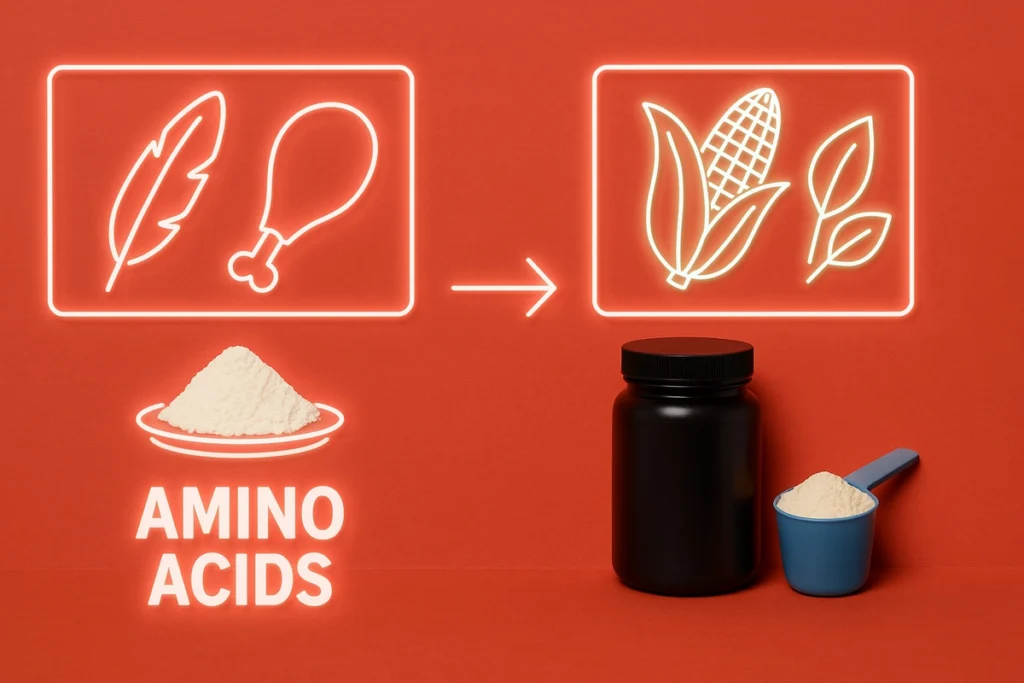
Absolutely—vegans can and should use BCAA supplements, especially if you’re training hard or struggling with recovery.
Most traditional BCAAs are made from animal by-products like duck feathers or even human hair (gross, right?). But thankfully, the supplement world has evolved.
Today, we’ve got vegan-friendly BCAAs made through fermentation using corn or other plant sources. These are 100% cruelty-free and digest much better in many cases.
Personally, I switched to vegan BCAAs a few years ago when I started training a few plant-based clients. I wanted to test them myself before recommending anything.
Honestly? I was surprised by how clean and effective they felt.
For those doing fasted cardio or training, check out this in-depth guide on BCAAs for fasted cardio and fat loss.
What Makes a BCAA Supplement Vegan?
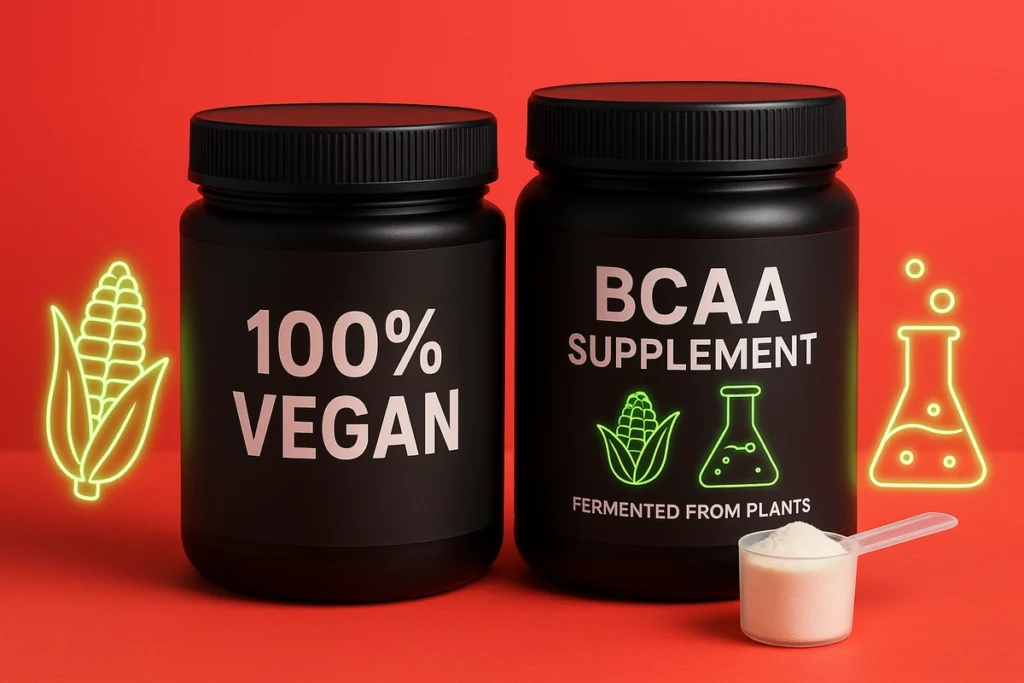
Not all BCAAs are vegan—even if the label doesn’t scream “animal-based.” What makes a BCAA vegan is the source of the amino acids.
Plant-based BCAAs are usually fermented from corn and are free from animal derivatives. They’re just as effective, minus the sketchy ingredients.
Look for these signs:
- Labels that say “100% vegan” or “plant-based”
- Amino acids sourced from fermentation
- No gelatin, dairy, or artificial sweeteners
One I really liked was from Clean Machine. Not only was it clean, but it digested way smoother than the usual blends filled with artificial flavors. I never got that weird bloated feeling post-workout.
Also, for women exploring strength training, this article on BCAAs for women dives into how plant-based options can fit into your routine.
Top 5 Vegan-Friendly BCAA Products (2025 Picks)
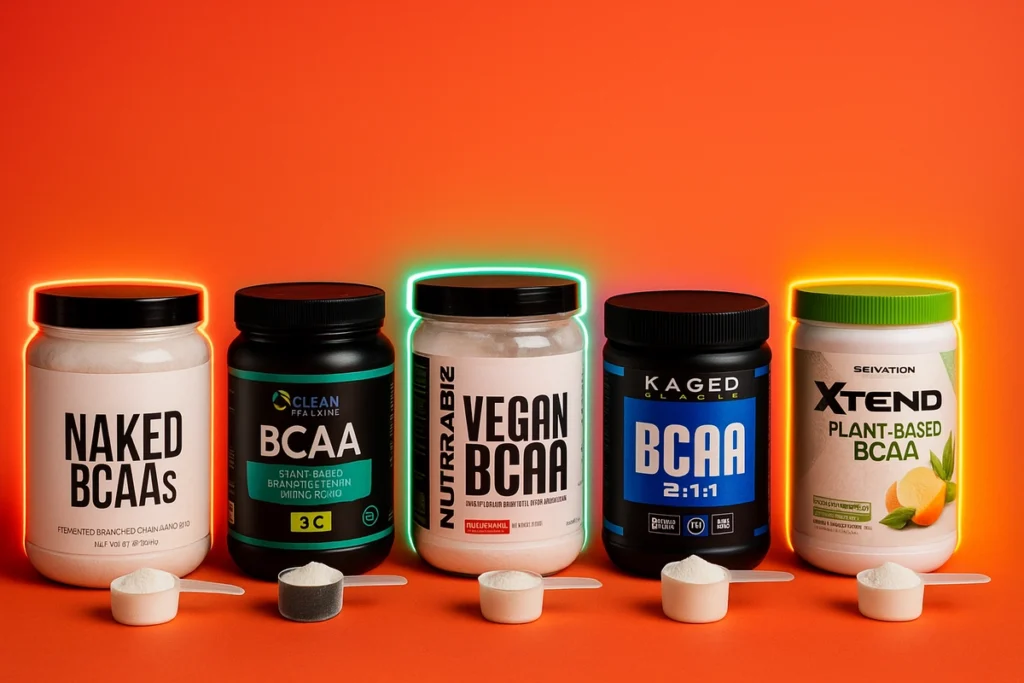
Here are five solid picks based on personal use, client feedback, and ingredient transparency:
- Naked BCAAs – Pure, unflavored, and effective. Great for those who want zero fluff.
- Clean Machine BCAA – Fermented, naturally sweetened, and gentle on the gut.
- NutraBio Vegan BCAA – Trusted brand, lab-tested, with nice flavor options.
- Kaged Muscle BCAA 2:1:1 – Stevia-sweetened, smooth taste, and zero artificial junk.
- Scivation Xtend Plant-Based – Good recovery profile and electrolytes included.
Miguel, one of my plant-based clients from Spain, struggled with fatigue during supersets. Once he started using NutraBio’s vegan BCAAs, he could push further and recover faster.
He noticed a real difference in endurance within just two weeks.
When and How to Take Vegan BCAAs
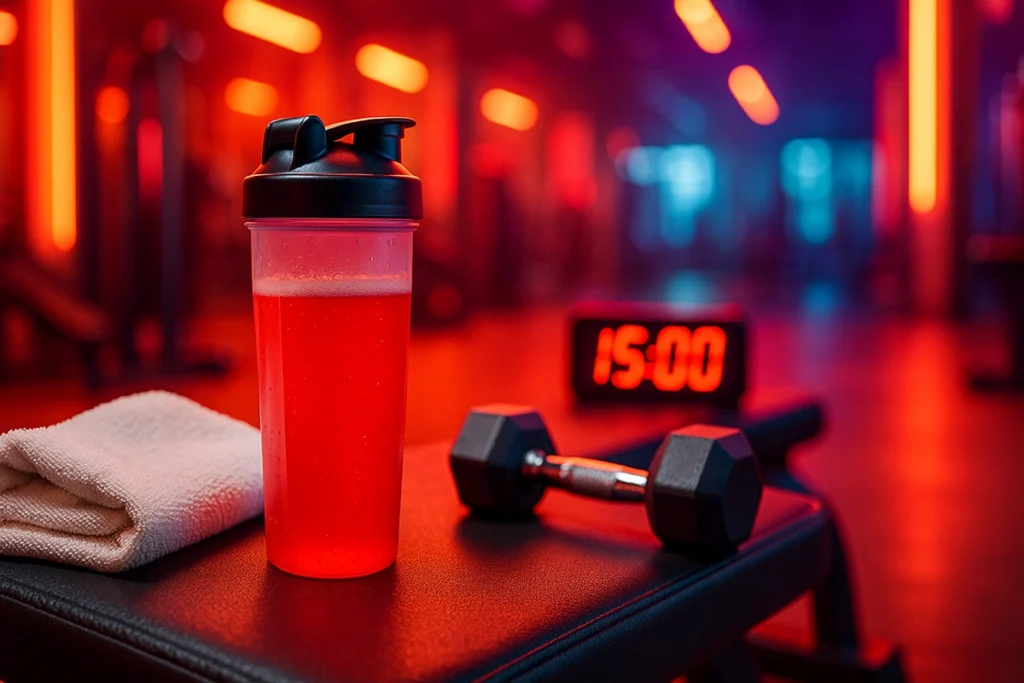
Timing matters—especially if you want maximum performance and recovery.
Here’s what I recommend:
- Fasted training? Take 5g BCAAs before your session.
- Long or intense workouts? Sip 7–10g during your workout.
- Heavy lifting days? Use it post-workout if your next meal is delayed.
That’s exactly what I do. On leg days, I mix 10g of BCAAs into 500 ml of water and sip it between sets. It keeps me going without needing a full meal mid-session.
To understand what works best for your schedule, read this full comparison on BCAA timing: before vs after workout.
Also, if you’re training less often, check this guide on BCAA use on rest days.
And if you’re confused about whether to take BCAAs with food or on an empty stomach, see this helpful guide.
Do Vegan BCAAs Actually Work?
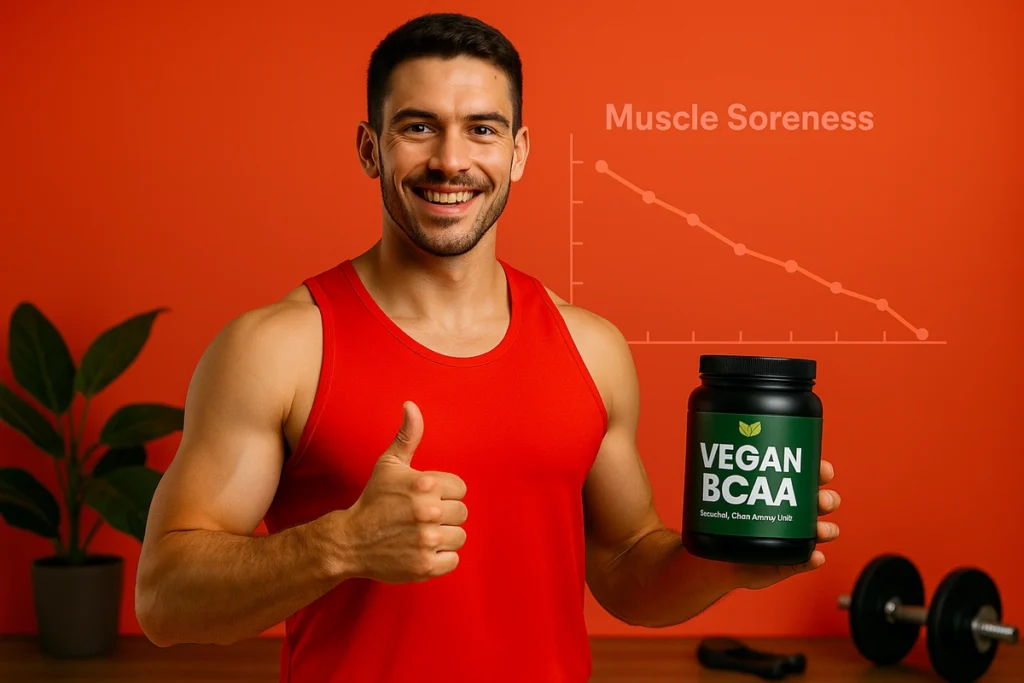
Yes. Vegan BCAAs still contain the same leucine, isoleucine, and valine in effective ratios (usually 2:1:1). The source doesn’t change the structure—it just removes the unethical or allergenic parts.
Emily, a vegan CrossFit athlete I coached in Sweden, used to get crushed by DOMS. After adding fermented BCAAs intra-workout, her soreness reduced noticeably.
She was finally able to hit back-to-back training days without dragging herself through the warmup.
If you’re wondering whether you need BCAAs at all—or how they compare to full-spectrum amino acid blends—this guide on EAAs vs BCAAs vs protein breaks it all down clearly.
You can also explore this deep dive on whether BCAAs are worth it if you already take protein powder.
Tips for Choosing the Best Vegan BCAA for You
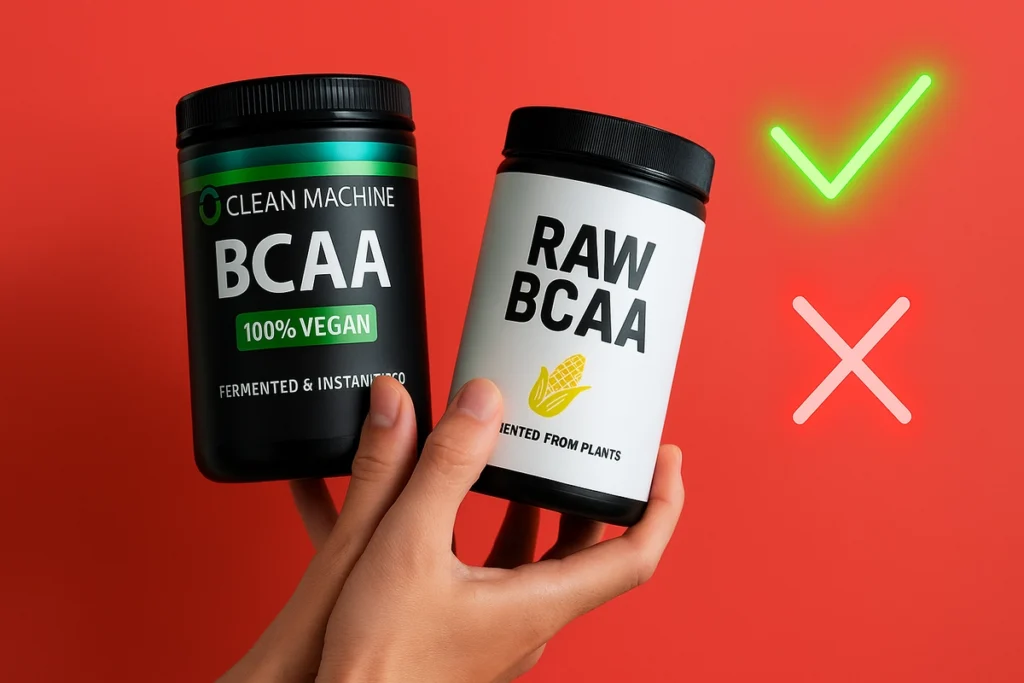
When shopping, I suggest you keep it simple and clean. Prioritize:
- Fermented plant-based aminos
- No artificial dyes or sweeteners
- Flavors you can actually drink daily
- Transparent labeling and third-party testing
Personally, I avoid artificial flavors like the plague. If I can’t pronounce it, I don’t drink it.
Some brands also use fillers that mess with your gut—so if you’ve had digestion issues with other BCAAs, check out this mixability guide.
Also—be aware of your dosage. Overdoing BCAAs won’t help, and can even backfire. See this article on BCAA overdose and side effects.
Final Verdict: Are Vegan BCAAs Worth It for Plant-Based Lifters?
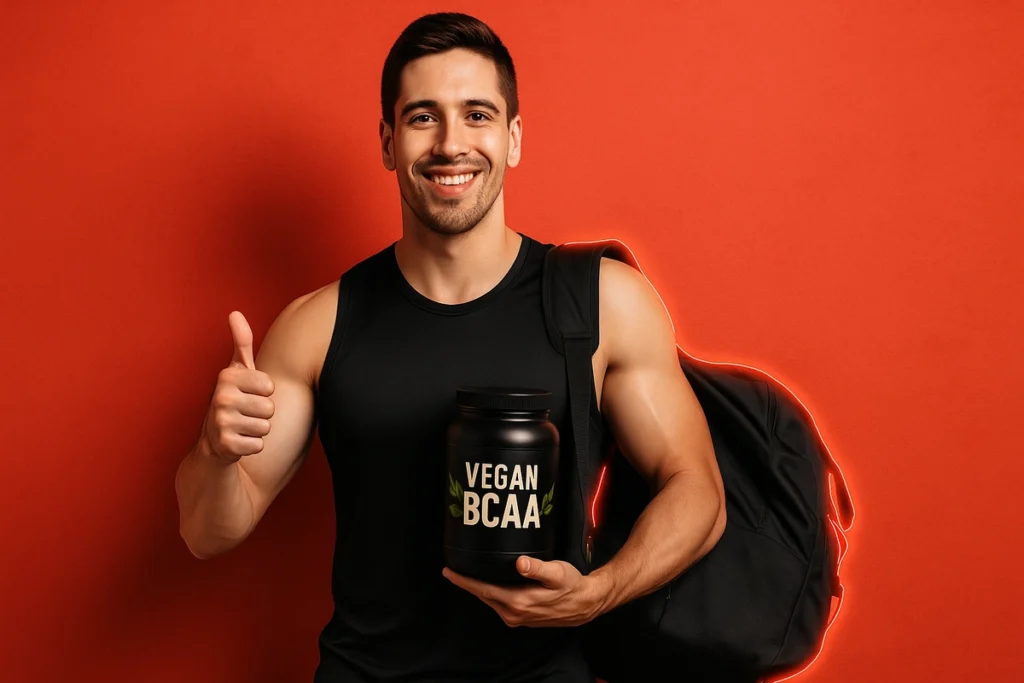
If you’re eating a mostly plant-based diet, training intensely, or doing fasted workouts, vegan BCAAs are absolutely worth it.
They won’t replace real food, but they will fill in the gaps and keep your training sharp—without compromising your ethics or digestion.
For me and many of my clients, vegan BCAAs have become a staple. They’re not just a trendy label—they’re a smart, effective, and clean way to support muscle and recovery, especially in a plant-powered lifestyle.
If you’re a runner, check out how BCAAs can help endurance athletes push further with less fatigue.
Stay strong. Stay fueled. Train smart.

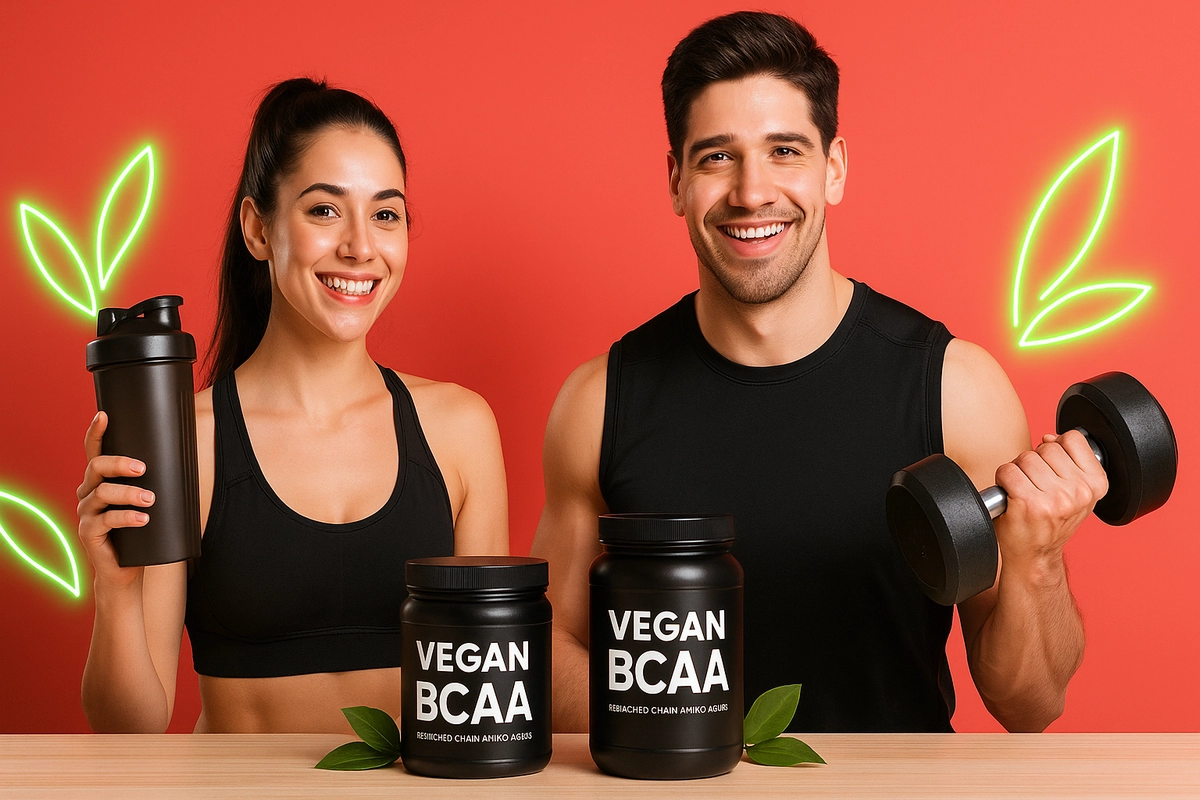

Leave a Reply